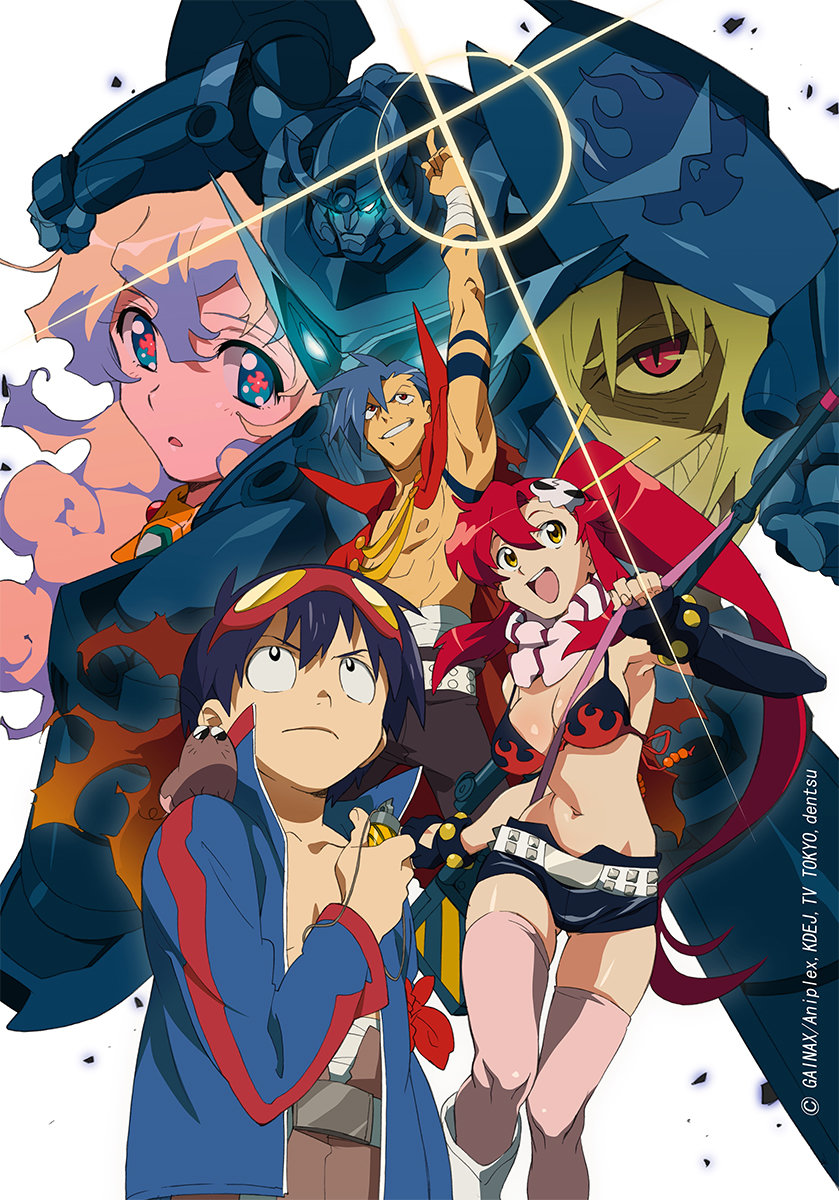Are Anime Fans Escaping from Reality? You Bet!
We’ve got a big announcement for everyone today: a new limited Megumi sticker for Christmas 2017, which is totally cute! You’ll get one sticker with each order shipping from Japan or San Diego, while supplies last. Browse and make your order now!
Are anime fans escaping from reality? One enjoyable aspect of anime is that it allows us to leave the more mundane parts of our lives and journey to a better place. That’s why so many anime feature generic and easy-to-identify-with main characters who are surrounded by harems of cute girls, or called upon to take part in heroic battles, or blessed with two nubile sisters who aren’t blood-related to him. But anime has become a huge phenomenon, and the average viewer is no longer a Japanese male aged 14-18, as has been in the past. So we need new kinds of stories that other groups can become emotionally vested in.
There are two interesting short-format series running this season that provide examples of older female anime fans escaping while adding a little oomph to their fantasy life. One is Osake wa Fuufu ni Natte kara (Love is Like a Cocktail) about a career woman named Mrs. Mizusawa who works as the assistant manager at her company, dealing with stressful things all day. But every evening she goes home where her young, handsome husband is waiting for her, ready to cook an amazing meal then mix cocktails just for her, making her the happiest woman ever. Then there’s Omiai Aite wa Oshiego, Tsuyoki na, Mondaiji (My Arranged Marriage Partner Is My Troublesome Student), about a teacher named Nano who meets with a man in a formal setting to discuss marriage, only to discover the man is a high school boy she teaches who’s full of anger and angst. The boy has his sights set on marrying her and maneuvers her into a situation where she can’t easily deny him. In a society where many men have become “herbivores,” supposedly lacking the ambition and drive for dating and relationships of previous generations, a story about a young man who would go to such lengths to win the heart of his teacher must feel very romantic to the target audience.
So, what do you think about anime fans escaping from reality? Is it a bad thing?
Is Japanese a hard language to learn? Of course it has its challenging parts (kanji, as well the initial process of straightening out the grammar of formal and informal verbs), but honestly it wasn’t that difficult, as long as I treated sentences as mathematical formulas I could work with until they became internalized. Here are four potentially useful bits of the language that might be fun to learn….
- One of the first words I identified in anime — remember I’ve been a fan since the days of having no subtitles — was 我々 ware-ware, an archaic way to say “we.”
- One useful word is やっぱり yappari, which means “just as I thought” or “as I expected” or “Aha! I knew you’d be trying to peek into the girl’s bath!” Commonly appears as yahari.
- When you learn something that surprises you, you might use the phrase なるほど naruhodo, which can be translated as “wow, I didn’t know that” or “I see your point.” In a TV drama, a police inspector might mutter this to themselves as a signal to viewers that he’d found another piece of a puzzle.
- One way to express “…but” at the end of a sentence is keredo, but it’s just a little too formal for everyday use. Naturally, it’s used in anime all the time, especially by Hitagi from Monogatari Series. Now that I’ve pointed the word out to you, you’ll probably becomes super-aware of it, until it makes you crazy.
If you want to make learning Japanese a girl for 2018, either a little or a lot, J-List can help!
People liked our Halloween sticker so much, we decided to make a new one featuring our beloved mascot Megumi for Christmas. With every order that ships from Japan or San Diego, we’ll insert one cute Megumi sticker, so you can have one in your collection as a keepsake of this holiday season. So start browsing our newest products and get your order in now!

















